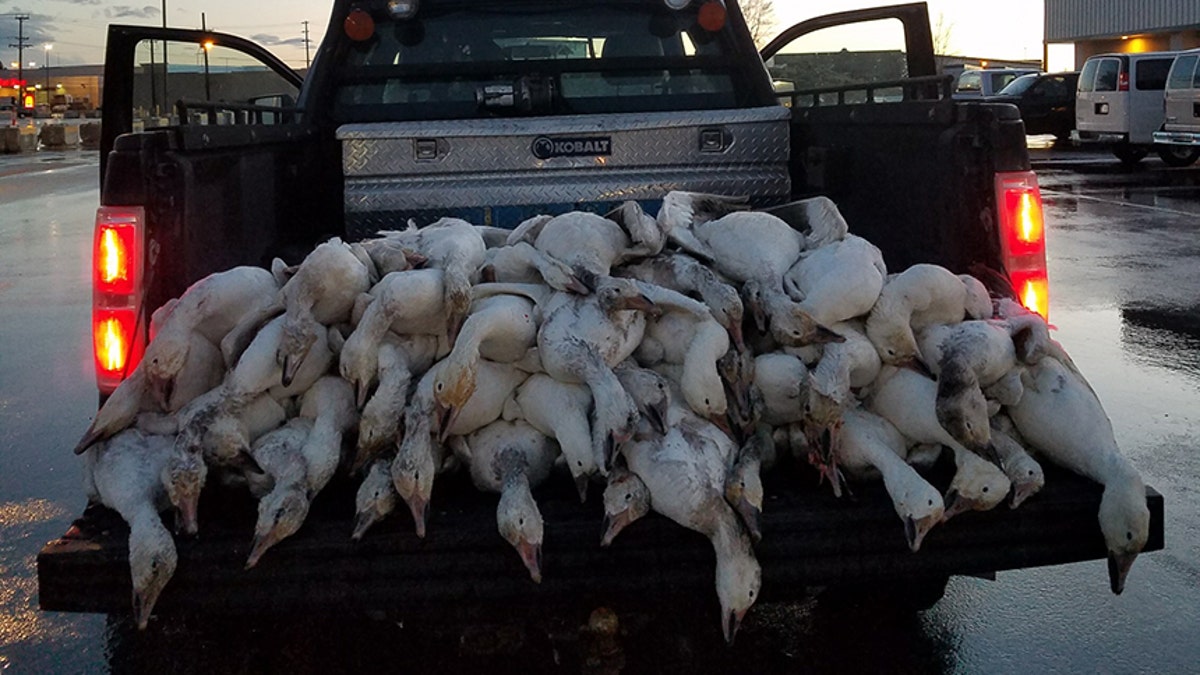
A gaggle of geese was found dead in a parking lot in Idaho Falls, Idaho, in what wildlife officials are calling a "freak accident." (Jacob Berl/Idaho Department of Fish and Game)
A gaggle of geese was found dead in a parking lot in Idaho Falls, Idaho, in what wildlife officials are calling a "freak accident." The 51 birds were clumped together, soaking wet, as golf ball-sized hail rained down on them during a thunderstorm Saturday night.
But it's not the hail that killed the birds as the migrated north, officials with the Idaho Department of Fish and Game (IDFG) said -- it's most likely lightning that caused them to fall from the sky.
"I don't think it was the hail or wind," James Brower, regional volunteer services coordinator with IDFG, told Fox News. "Hail would have injured the geese. They'd still be alive. All of these were dead. When the officer arrived nothing was moving or twitching."
IDFG officer Jacob Berl was the only officer to respond to the scene that night. He said the birds -- 48 snow geese and three ross geese -- were all centrally located within a 100-yard radius, which is further proof that lightning likely caused their deaths.
"Mother nature is sometimes cruel to the wildlife kingdom."
"He opened a few up and saw their lungs were exploded," Brower added.
While it was a shocking sight, Brower said it's not completely uncommon. Wildlife officials in the area often respond to calls of mass die-offs, though it's usually due to disease.
"Mother nature is sometimes cruel to the wildlife kingdom. We worry about accidents with cars and truck -- sometimes animals are affected just by the weather," Brower said.
In his nearly eight years of working with the wildlife department, Brower said he's never seen a case quite like this, though. A "perfect storm" of events -- the timing, wind and direction of flight -- all contributed to the deadly incident.
Fortunately, it doesn't have a population level effect on snow geese in the area, Brower said. Idaho is a popular state for birds to fly over as they migrate north in the spring.
"Up to 60,000 snow geese, white-fronted geese and other waterfowl use the WMA [Wildlife Management Area] as a stop over on their northern flights," IDFG revealed in a March 2017 post online. "The birds typically leave warmer climes ranging from Baja Mexico to northern California and follow the snow line north."
Regardless, Brower said no one wants to see an animal die.
"It's always sad; it's never something you want to see," he commented.
In order to better understand what happened to the flock of geese Saturday, wildlife officials will send several off for necropsies to determine an official cause of death.








































